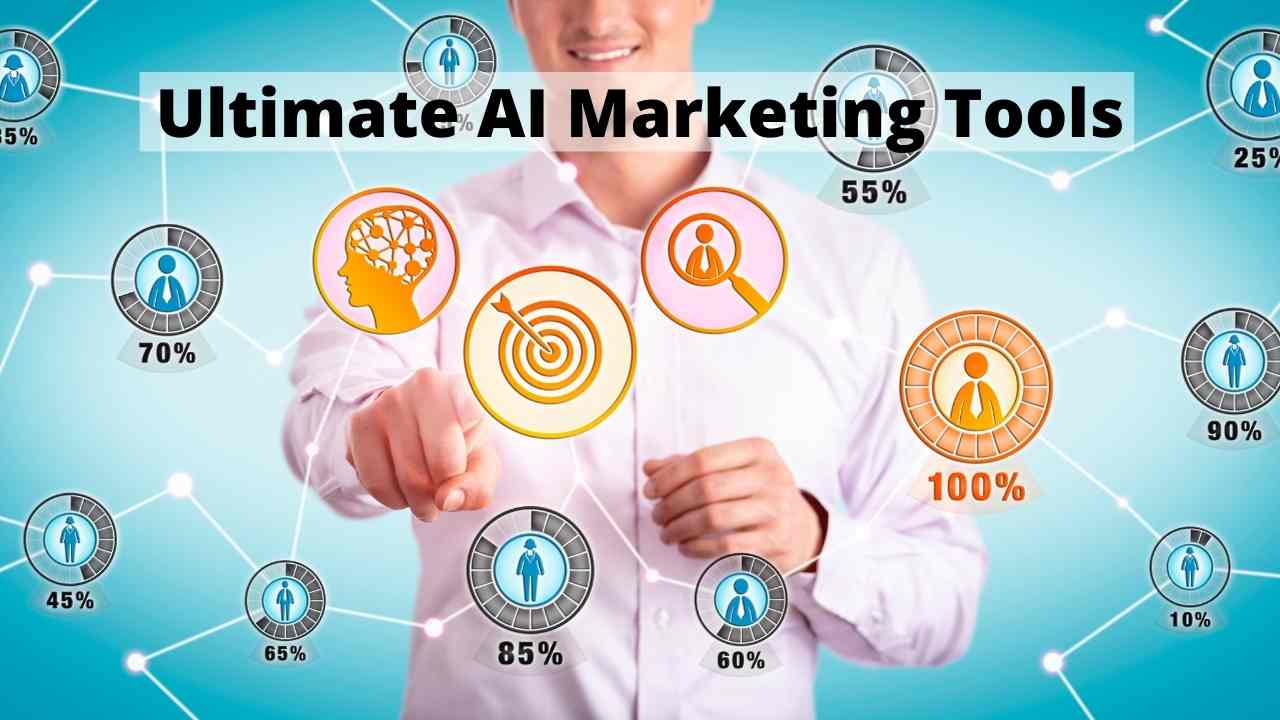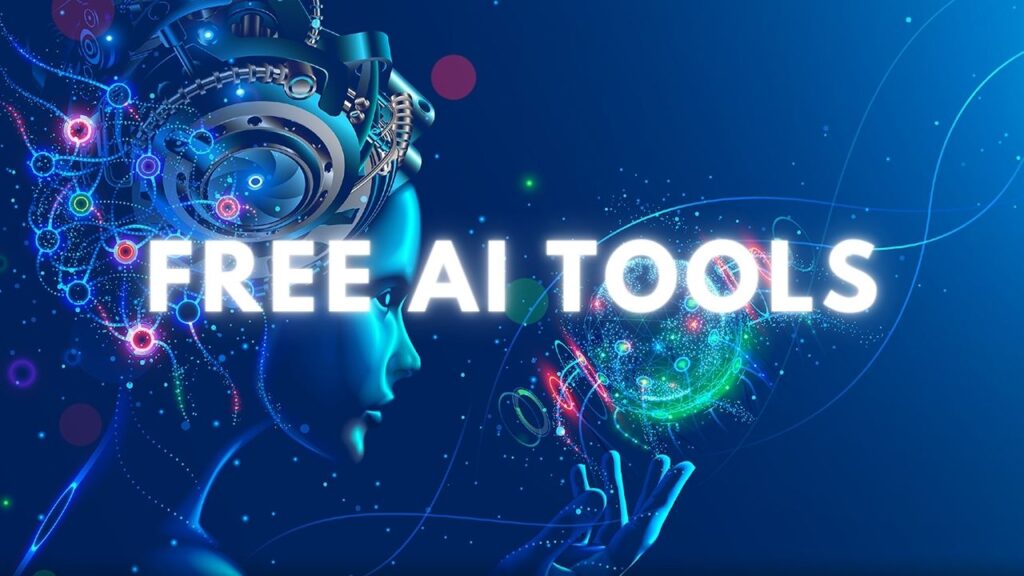In the dynamic landscape of digital marketing the integration of Artificial Intelligence (AI) has become indispensable for businesses aiming to enhance their strategies streamline operations and achieve higher ROI. The good news is that many powerful AI tools are available even for those operating on tight budgets. These tools are not just affordable but often free offering robust functionalities that empower marketers to elevate their campaigns and reach their target audience effectively.

Best Free AI Tools for Digital Marketing Success
Here’s a curated list of some of the best free AI tools that can revolutionize your digital marketing efforts:
- Google Analytics
Google Analytics stands as the cornerstone for understanding website traffic and user behavior. Its AI-driven insights provide comprehensive data on user demographics, interests and behavior enabling marketers to optimize their strategies based on real-time analytics.
- Canva
Although not strictly an AI tool Canva employs AI in various aspects including suggesting design elements and layouts based on user preferences. It simplifies graphic design tasks for marketers by offering templates stock images and intuitive design tools to create captivating visuals for social media ads and other marketing materials.
- Chatbots (Chatfuel, ManyChat)
Chatbots have transformed customer service and engagement. Platforms like Chatfuel and ManyChat utilize AI to create chatbots for websites and social media platforms enabling automated interactions with customers answering queries and guiding them through the sales funnel.
- Ubersuggest
Ubersuggest a comprehensive SEO tool, utilizes AI to provide keyword suggestions backlink opportunities and content ideas. It assists marketers in optimizing their content for search engines thus improving their website’s visibility.
- Phrase
For email marketers Phrase uses AI to generate compelling and personalized email subject lines that increase open rates and engagement. It optimizes language based on user preferences and past performances enhancing the effectiveness of email campaigns.
- Revealbot
Revealbot automates and optimizes ad campaigns on social media platforms like Facebook and Instagram. Its AI-driven algorithms analyze data to make real-time adjustments ensuring better ad performance and cost efficiency.
- AnswerThePublic
This program visualizes search queries using artificial intelligence (AI) and gives insights into what people are searching for online. Marketers may use this information to provide interesting and pertinent content that meets the requirements and preferences of their target audience.
- SocialBee
SocialBee employs AI to curate and schedule social media posts across various platforms. It also offers content categories and audience targeting simplifying maintaining an active and engaging social media presence.
- HubSpot CRM
HubSpot’s CRM platform incorporates AI to manage customer data, automate tasks and personalize interactions. It aids marketers in building stronger relationships with their audience by providing insights into customer behavior and preferences.
- Tone Analyzer (IBM Watson)
IBM Watson’s Tone Analyzer analyzes written content’s tone and sentiment which can be invaluable for ensuring that marketing messages align with the intended emotions and resonate positively with the audience.

Your digital marketing efforts may be greatly enhanced by utilizing these free AI-powered tools. Without breaking the bank, you may utilize them to use data-driven insights enhance customer connection and optimize various advertising areas. Including artificial intelligence (AI) in your marketing arsenal provides you with the edge you need to thrive in today’s quickly evolving digital landscape.
- AdEspresso
AdEspresso now part of the Hootsuite family provides AI-powered ad optimization for various platforms like Facebook, Instagram and Google Ads. Its intuitive interface and AI algorithms allow marketers to create test and optimize ad campaigns efficiently.
- Pixlr
Pixlr an AI-driven photo editing tool offers a range of features for editing images. With its user-friendly interface and AI-enhanced functionalities marketers can create visually appealing graphics for their campaigns.
- Talkwalker Alerts
Utilizing AI-powered analytics Talkwalker Alerts monitors online mentions and brand references across various channels. Marketers can track brand sentiment, industry trends and competitor activities enabling proactive responses and strategy adjustments.
- SnatchBot
SnatchBot enables the creation of AI-powered chatbots across multiple platforms. Its intuitive interface and AI capabilities facilitate the development of sophisticated bots for enhanced customer interactions.
- Peek by UserTesting
Peek provides quick AI-driven website usability reviews. It allows marketers to gather insights into user experiences helping identify areas for improvement and optimization.
- Finteza
Finteza is an AI-powered web analytics tool that offers real-time insights into website performance user behavior and conversion tracking. It aids in understanding audience interactions and optimizing marketing strategies accordingly.
- Piktochart
Piktochart uses AI to assist in creating visually engaging infographics presentations and reports. It simplifies the design process allowing marketers to convey complex information in a visually appealing manner.
- Crayon
Crayon provides AI-driven market intelligence by tracking competitor’s digital footprints. Marketers can gain valuable insights into competitor’s strategies product launches and industry trends.
- Rasa
Rasa is an open-source conversational AI platform that enables developers to build AI-powered chatbots and assistants. Its machine-learning capabilities allow for highly customizable and sophisticated conversational experiences.
- SEOquake
SEOquake a browser extension offers AI-driven insights into SEO metrics keyword analysis and website performance. It assists marketers in making data-driven decisions to improve their website’s search engine ranking.
The benefits of using AI tools in digital marketing
AI tools wield significant potential in digital marketing by transforming various aspects of the process. They bring about efficiency improvements by automating repetitive tasks that would otherwise consume considerable time and resources. For instance AI can handle routine customer inquiries through chatbots freeing up human resources to focus on more complex or strategic tasks.
Moreover AI’s prowess in data analysis enables sharper decision-making. These tools can sift through vast amounts of data at incredible speeds extracting valuable insights that aid marketers in understanding customer behaviors, preferences and trends. By interpreting this data, marketers can make informed decisions refining their strategies for more targeted and effective campaigns.
Personalization stands out as another crucial benefit brought by AI tools. By harnessing data insights marketers can personalize content and experiences for individual customers or segmented audiences. This tailored approach enhances engagement, as customers feel a stronger connection to brands that address their specific needs and preferences.

Limitations to using free AI tools in digital marketing
Free AI tools while incredibly useful, do have certain limitations when compared to their premium counterparts. These limitations often manifest in several areas:
- Features:Free AI tools generally offer a subset of features available in premium versions. They might lack advanced functionalities or have limited capabilities compared to the paid versions. For example a free version of a tool might offer basic analytics while the premium version provides in-depth customizable analytics and reporting.
- Customization:Free AI tools might not allow for extensive customization. Users might be limited in configuring settings, workflows or algorithms according to their specific needs. Premium tools often offer greater flexibility in tailoring the tool to suit unique requirements.
- Support:Free versions typically come with limited or community-based support. Users might not have access to dedicated customer support or assistance relying instead on forums or documentation. Conversely premium versions usually offer priority support with dedicated teams to address issues promptly.
- Scalability:Free AI tools often have limitations on scalability. They might restrict usage based on data limits, user numbers or access to certain advanced features hindering scalability as businesses grow or require more extensive functionalities.
- Integration:Integration options might be limited in free versions. Premium tools often provide seamless integration with other software, platforms or APIs enabling smoother workflows and data sharing. Free versions may lack these integrations or offer limited connectivity options.
- Capability Restrictions:Certain advanced features algorithms or functionalities that are crucial for complex tasks or specialized industries might be exclusive to premium versions. This restriction can limit the depth and breadth of what can be achieved with the tool.
At The End
By leveraging these diverse and innovative AI tools, marketers can optimize their digital marketing strategies engage their audience more effectively and achieve better results all without a significant financial investment. Embracing AI technology is not just a trend but a necessity in the competitive landscape of digital marketing. Integrating these free AI tools empowers marketers to stay ahead drive impactful campaigns and build stronger connections with their target audience in today’s digitally-driven world.

